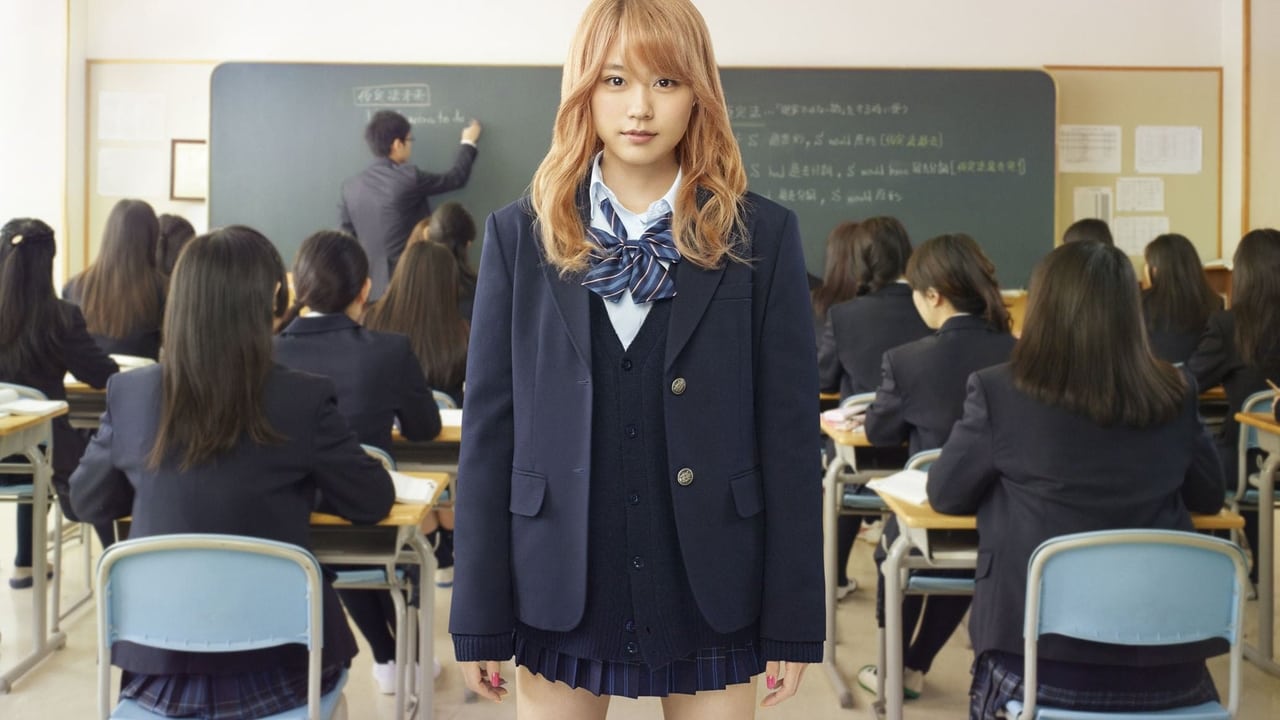Smartorhypo
Highly Overrated But Still Good
Kidskycom
It's funny watching the elements come together in this complicated scam. On one hand, the set-up isn't quite as complex as it seems, but there's an easy sense of fun in every exchange.
ThedevilChoose
When a movie has you begging for it to end not even half way through it's pure crap. We've all seen this movie and this characters millions of times, nothing new in it. Don't waste your time.
Jenni Devyn
Worth seeing just to witness how winsome it is.
phoenix 2
A movie that the title (and description for that matter) doesn't do it justice. Truthfully, they both make it sound like a comedy that would quickly get boring. But, it is actually quite an enjoyable film, with the leading lady rocking it with her performance. The movie had a light feeling, but explored the family dynamics very effectively, giving it a little depth. The fact that the film makers didn't focus, or added, a romantic element into it, to overshadow the whole main story, helped a lot to turn the film into a more unique movie than the rest manga like movies. However, the romance "danger" was there, with an other outcast dropped there, dangerously approaching the girl. But the film just kept focused on the main plot, having the girl outsmart herself and aim for the miracle. So, 8 out of 10.
WILLIAM FLANIGAN
Viewed at CineMatsuri 2016. Director Nobuhiro Doi trodes the well-worn path of the home drama genre by delivering a standard family sitcom complete with role stereotypes, caricatures, and silliness masquerading as drama/comedy. This feel-good, sophomoric, movie fantasy would seem more appropriate for domestic TV viewers than movie theater audiences. The Director ensures that there will be no surprises (except maybe one) by aggressively telegraphing future events. The possible exception is the sudden and radical change in hair styles! Lead actress Kasumi Arimura never completely leaves her juvenile "Japanese cuteness" baggage behind as she progresses (at warp speed!) from bottom of the class in public secondary school to acceptance by a prestigious private university via a year (or so) of private, cram-school coaching. Acting by Atsushi Itô playing the cram school teacher/psychologist/philosopher/hand-holder/parent/would be lover/... is hard to swallow almost from the start and even more so as his character morphs into a caricature. Actress Yoh Yoshida takes on the typical role of a career-frustrated and long-suffering mother, but does so with aplomb; she consistently delivers the best (and most believable) acting in the film. All that being said (and at the risk of speculative over analysis), there is, perhaps, another angle to be considered: soft core propaganda with Doi's channeling of Mary Poppins (and her use of sugar to camouflages the bitter taste of medicine). The Director may be employing a cleaver multi-layered pop entertainment wrapper to disguise his lectures on pressing societal issues. Targeted multi-generational audiences have seen programs of this genre before (they seem to be a staple of contemporary Japanese TV) which only adds to the effectiveness of the sugar coating. First up, of course, is the theme of the film which is an unrelenting indictment of the Japanese public school system with its focus on mass rote learning (with zero consideration given to individual student needs) and it's failure to prepare students to think for themselves as they become adults. Replacing public schools with privately chartered ones is the unmistakable message (sound familiar?). Then there is the negative impact of traditional child rearing where parents force children into a career path that the adults were denied or unable to succeed in. Student bullying or group-enforced conformity to the lowest educational level of achievement is also covered. (And there could be a few more packed in there.) The film is way too long (by half) and boringly repetitious. The screen play (and direction) look suspiciously like they may have been puffed up to increase the film's duration. Cinematography (semi-wide screen, color), lighting, scene continuity, and film score are okay. Subtitles often provide less than accurate (or complete) translations of line readings, and, essentially, can present a parallel story to the one in the movie! Many signs are not translated. Fun to watch, but only with a ton of popcorn! WILLIAM FLANIGAN, PhD.
Hannah Lee
There are some out there who believe that mainstream films can never be artistically great or entertaining. I am certainly not one of them - and this film definitely proves it. True, it's not groundbreaking by any means. But is it interesting? Is it emotionally gripping? And most importantly, is it memorable? This is all three, and more. Taking literally the best parts of what characterizes Japanese film - over the top acting, narrative exposition, classic tugs at the heart-strings moments and melodramatic long pauses - this film pulls great screen writing, direction and acting to produce what has to be the best two hours to come out of mainstream Japanese cinema in a very long time.
GrumpyPasserby
Tender and touching, this movie is a real story (based) of following your dreams and of how a great teacher can help people to realize their true potential.The main hero, Sayaka - thickly painted social butterfly at the start of the story, with no knowledge and no skills to speak of - with the help of 'cram school' teacher working overtime because of his belief in his students - is gradually transformed over the course of the movie into successful student, sure of herself and her abilities, who applies for the entry exams into one of the finest universities in Japan.Great story and great cast -- frankly, I was quite skeptical when I started the movie, but all the performances were so believable, and the flow of the story is so finely woven that it completely won me over long before the movie was over. This movie moves you on many different levels - girl's struggle with her own insecurities, her troubled relationship with her family, the teacher finding ingenious ways to help students who are not interested in learning, to start with - everything is told with so much skill and so much heart that you can not help being pulled in by the story.Watch it! One of the external reviews called it "an entertaining time-waster". Well if it is, it is probably the most useful way to waste two hours of your time :)

